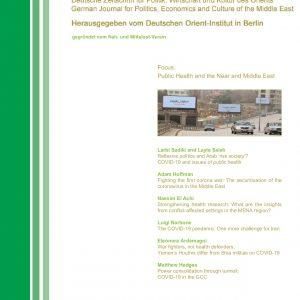Description
Zeroing in on the notion of “risk society,” this article attempts to unpack the challenges posed by COVID-19 on the Arab world. It highlights problems of inequality within and between Arab states with respect to public health infrastructure and access. Weak governance, conflict, repression of civil society, and external dependency pose deep challenges for capacity development in Arab public health as the state increasingly abdicates its distributive responsibilities. However, a perspective of critical reflexivity can jump-start rethinking by both policymakers and citizens to tackle problems of inequity and marginalization in looking ahead to Arab post-COVID politics and public health.
Larbi Sadiki is Professor of Arab Democratization at Qatar University. He is editor of Routledge Handbook of Middle East Politics: Interdisciplinary Inscriptions (2020), as well as lead Principle Investigator of the QNRF-funded ‘Transitions of Islam and Democracy: Engendering ‘Democratic learning’ and Civic Identities.’ He recently was a guest editor of a Special Issue of The International Spectator titled ‘The GCC in Crisis: Explorations of “Normlessness” in Gulf Regionalism.’
Layla Saleh is Associate Professor of Political Science at Qatar University. She is author of US Hard Power in the Arab World: Resistance, the Syrian Uprising, and the War on Terror (Routledge, 2017), and a Principal Investigator in the QNRF-funded ‘Transitions of Islam and Democracy.’ With larbi Sadiki, she was guest editor of a Special Issue of The International Spectator titled ‘The GCC in Crisis: Explorations of “Normlessness” in Gulf Regionalism.’




Reviews
There are no reviews yet.